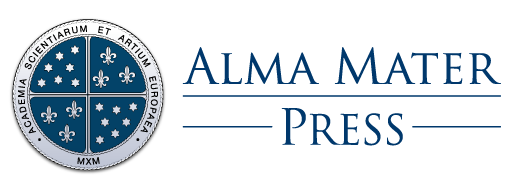Intervention in Science Degradation: Understanding the Work of Stigma
DOI:
https://doi.org/10.33700/1580-7118.19.1.125-145(2017)Keywords:
stigmatisation, discrimination, political bipolarity, freedom of expression, secrecyAbstract
The research paper begins by explaining the disciplinary surplus of a transformative approach to research, which aims at a minimalist intervention in the power relations of science. Methodologically, the paper combines self-positioning, auto-ethnographic notes, a critical analysis of power relations, semiotics, and critical discourse analysis. The main subject of its research, stigma and stigmatisation, is defined through the triad ‘freedom of expression – discrimination – protection against incitement to hatred’. The incitement to hatred, synonymous with hate speech, may be traced in stigmatisation, which serves as a tool of discrimination and exclusion. The starting-point of an argument urging the need for individual and collective responsibility for the lack of social bond (the lack which partly results from stigma as an element of hate speech) is a grasp of the role of political bipolarity.
Another conceptualisation, important for the elaboration of this theme, is derived from classic liberal defence of freedom of expression, and thus of the human rights of women (John S. Mill and Harriet Taylor Mill). This defence is pitted against the ‘normal’, ‘mundane’. In Goffman’s reading of stigma, too, the ‘normal’ in socio-cultural life is perceived as destructive of human equality. In the field of modern scientific research, the opposite of the ‘normal’ is the stigma of conflict, that is, maladjustment. In some cases it is even actual or alleged political orientation that becomes a stigma, which points to the political marking of scientific hierarchies and to the formation of a sector margin. The paper concludes with a strategic option at the level of subjectivity: subjectivity may be processed by our adopting the stigma and by expressing the will to deconstruct the silence which permits an illegitimate exercise of power. In order to transform the mechanisms of scientific authorities, it is necessary to establish a functional instance for the enforcement of ethical science and research integrity.
Downloads
References
BELAUSAU, U. (2010): “Judicial Epistemology of Free Speech through Ancient Lenses”, International Journal for the Semiotics of Law, 23 (2),165–83.
BREWIS, A. A., WUTICH, A., FALLETTA-COWDEN, A., in RODRIGUEZ-SOTO, I. (2011): “Body Norms and Fat Stigma in Global Perspective”, Current Anthropology , 52 (2), 269–276.
DENZIN, K. N., GIARDINA, D. M. (2009): “Introduction: Qualitatative Inquiry and Social Justice: Toward a Politics of Hope. V Qualitatative Inquiry and Social Justice. Toward a Politics of Hope, N. K. Denzin in M. D. Giardina (ur.), 11–45, Left Coast Press, Walnut Creek.
DOLAR, M. (2009): Kralju odsekati glavo: Foucaultova dediščina. Krtina, Ljubljana.
GOFFMAN, E. (1986): Stigma: Notes on the Management of Spoiled Identity, Simon and Schuster, New York.
GROSZ, E. (2005): Time Travels. Feminism, Nature, Power, Duke University Press, Durham in London.
HARAWAY, D. (1988): “Situated Knowledges: The Science Question in Feminism and the Privilage of Partial Perspectives”, Feminist Studies, 14 (3), 575–599.
JACKSON, B. S. (1997): Law, Fact and Narrative Coherence. Deborah Charles Publications, Merseyside.
KUHAR, R. (2009): Na križiščih diskriminacije: Večplastna in intersekcijska diskriminacija, Mirovni inštitut, Ljubljana.
MACLEOD, C. (2016): “John Stuart Mill”, The Stanford Encyclopedia of Philosophy (Winter Edition), Edward N. Zalta, ur. Dostopno prek https://plato.stanford.edu/archives/win2016/entries/mill/ (11. 12. 2016).
MILL, J. S. (1992 [1858]): On Liberty and Utilitarianism, Oxford University Press, London.
MILL, J. S. (n.d. [1869]): The Subjection of Women, Oxford University Press, London. Dostopno prek http://www.marxistsfr.org/reference/archive/mill-john-stuart/1869/subjection-women/index.htm (11. 12. 2016).
MOČNIK, R. (1999): Tri teorije. Ideologija, nacija, institucija, cf, Ljubljana.
PROBYN, E. (1993): Sexing the Self. Gendered Positions in Cultural Studies. London in New York: Routledge.
ŠUMIČ RIHA, J. (2002): Mutacije etike. Od utopije sreče do neozdravljive resnice. Ljubljana: Založba ZRC.
TUANA, N. (2006). “The Speculum of Ignorance”, Hypatia 21 (3), 1–19 (internetna objava: 1–31). Dostopno prek https://muse.jhu.edu/login?auth=0&type=summary&url=/journals/hypatia/v021/21.3tuana02.html (27. 9. 2015).
VERENICH, V. (2013): “The Case of Lauris Kaplinski: A Guide to a Semiotic Reading of Incitement of Hatred in Modern Criminal Justice”, Signs and Society 1(2), 213–241.
ŽIŽEK, S. (2007): Nasilje, Društvo za teoretsko psihoanalizo, Ljubljana.

